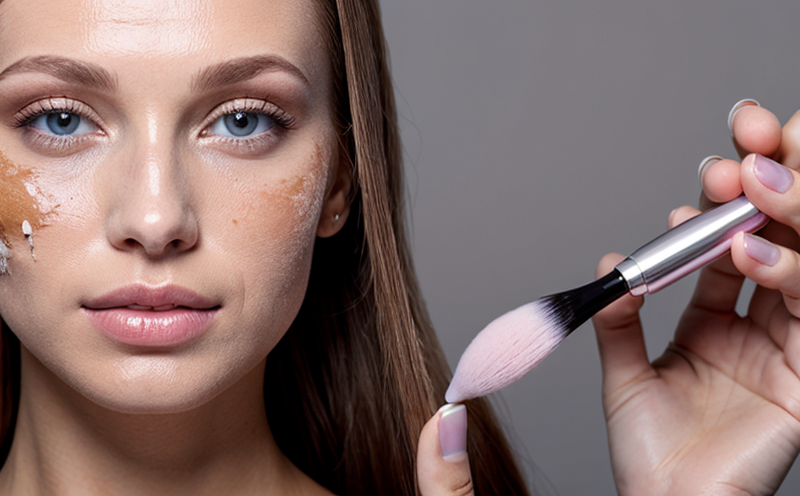IFRA Compliance Testing for Perfume Ingredients
IFRA compliance testing is a critical process for the cosmetics industry. The International Fragrance Association (IFRA) publishes a list of fragrance ingredients that are either prohibited or subject to strict conditions under certain circumstances, and these regulations must be adhered to by manufacturers.
The purpose of IFRA compliance testing is to ensure that the perfume ingredients used in cosmetic products comply with the latest IFRA guidelines. This process involves several steps including identifying relevant ingredients, assessing their usage levels, and validating whether they meet the specified criteria for safety and environmental impact.
Compliance testing requires a thorough understanding of both national and international regulations governing fragrance formulations. For instance, in Europe, the REACH regulation mandates that all cosmetic products must comply with IFRA standards. Similarly, in the United States, the FDA regulates cosmetics under the authority of the Fair Packaging and Labeling Act (FPLA), which includes compliance with IFRA rules.
The testing process typically begins by gathering information about the fragrance ingredients used in a particular formulation. This includes details such as the chemical structure, concentration levels within the final product, and any potential interactions or synergistic effects that might arise during manufacture or use. Once this data has been collected, it is compared against IFRA guidelines to determine if further testing is necessary.
One key aspect of IFRA compliance testing involves evaluating the environmental impact associated with certain fragrance ingredients. This includes assessing factors like biodegradability and aquatic toxicity. If a particular ingredient fails these tests, alternative substitutes may need to be considered or additional measures taken during formulation to mitigate risks.
In summary, ensuring IFRA compliance is essential for maintaining product safety while also adhering to legal requirements both domestically and internationally. By following proper testing protocols and staying up-to-date with the latest IFRA guidelines, companies can help protect themselves from potential recalls or lawsuits resulting from non-compliance issues.
Applied Standards
| Standard Name | Description |
|---|---|
| IFRA Fragrance Guidelines | The International Fragrance Association's guidelines for safe and ethical use of fragrance ingredients. |
| REACH Regulation (EU) | A regulation by the European Union designed to ensure that all chemical substances used in manufacturing are assessed for their potential risks before being placed on the market. |
Competitive Advantage and Market Impact
Ensuring IFRA compliance provides several competitive advantages in today's increasingly regulated global market. Companies that demonstrate adherence to these standards often gain trust among consumers who prioritize environmental responsibility and safety.
- Better reputation management through transparent communication regarding product safety practices.
- Potential reduction in legal disputes due to clear compliance documentation.
- Enhanced market access, especially when targeting regions with stringent regulatory environments like the EU or US.
In addition to these benefits, companies that prioritize IFRA compliance also contribute positively towards sustainability initiatives aimed at reducing harmful emissions and waste from chemical production processes. This aligns well with growing consumer demand for eco-friendly products.
Use Cases and Application Examples
| Use Case | Description |
|---|---|
| New Product Development | During the early stages of product development, companies can use IFRA compliance testing to identify potential issues and make necessary adjustments before full-scale production. |
| Supply Chain Management | By ensuring that all suppliers meet IFRA standards, manufacturers can maintain consistent quality across different batches of raw materials used in their products. |
- An example would be a skincare company developing a new line of facial serums. Before proceeding with large-scale manufacturing, they conduct IFRA compliance testing on each ingredient to ensure no prohibited substances are present and that any restricted ones comply with prescribed conditions.





